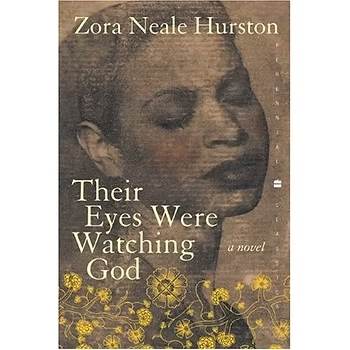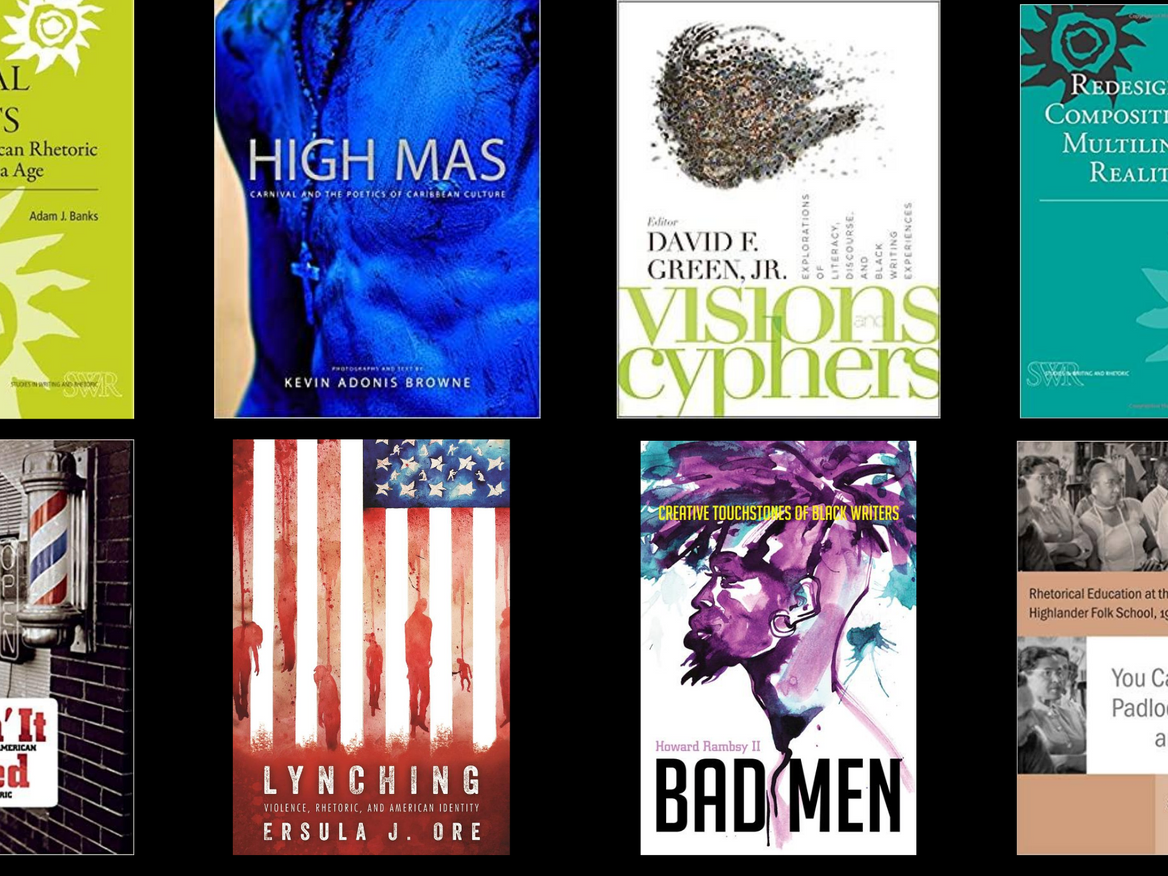I never tire of teaching Their Eyes Were Watching God because I’m always interested in characters who emerge from relative voicelessness to become powerful language users. This is the trajectory of Janie, who has little say as her grandmother pushes her toward the well-to-do Logan Killicks and into a marriage of (in)convenience. She escapes that marriage, while still a teenager, by running off with husband number two, who appears to be kinder than the man who demanded her humility and threatened her with hard labor on the farm. But Joe Starks views her as little more than a voiceless ornament. When townspeople ask to hear from her at a ceremony, Joe forbids it, remarking, “Mah wife don’t know nothin’ ‘bout no speech-makin’. Ah never married her for nothin’ lak dat. She’s uh woman and her place is in de home.” Unlike her brief first marriage, she is with Joe for almost twenty years, maintaining her material status at the expense of her desire to express herself verbally. Joe’s remains inflexible, insisting that “somebody got to think for women and chillun and chickens and cows.”
New Words
Fortunately, Janie comes to see Joe’s shallowness and insecurity for what they are. And she is ready for the climactic language battle. When Joe characteristically insults her in public, she uncharacteristically returns the fire in one of the most memorable passages in African American literature: “You big-bellies round here and put out a lot of brag, but ‘tain’t nothin’ to it but yo’ big voice. Humph! Talkin’ ‘bout me lookin’ old! When you pull down yo’ britches, you look lak de change uh life.” Joe is belittled before a stunned audience, his masculinity assailed by his own wife who outtalks him in the process. His response is typical: “He struck Janie with all his might.” He subsequently moves out of their bedroom and largely ignores his wife, though he is still reeling from her surprising offensive. His health declines rapidly, and he soon expires, leaving Janie to be an independent voice for the first time in her life.
New Roles
Her third husband, Tea Cake, becomes her strongest supporter, always urging her to “have de nerve tuh say whut you mean.” This advice is new to Janie, but she enthusiastically responds. And she says of Tea Cake, “he done taught me de maiden language all over.” With this guitar-playing songster, Janie finally finds a satisfying romance. She even enjoys their life as farmhands down on “the muck.” The fact that she is an equal partner in marriage outweighs the hard work. In addition, the load is lightened because Janie has found an enriching language community, one in which she is allowed to participate fully.
Whatever his flaws, Tea Cake has helped Janie in ways that last a lifetime. Not even the tragic circumstances of his death could diminish it. As he is laid out for burial, she celebrates him by buying a new guitar to place in his hands. She imagines that he would play new songs for her once she joined him in the afterlife. In the meantime, she will continue to spin her own song in the here and now and bear witness to the self-fulfillment achievable when one harnesses one’s voice for one’s own aims. She inspires people, especially women, both in the novel and beyond, to speak up for themselves and pursue their dreams. Many share the sentiments of her closest friend, Phoeby Watson, who declares, “Nobody better not criticize yuh in mah hearin’.”





